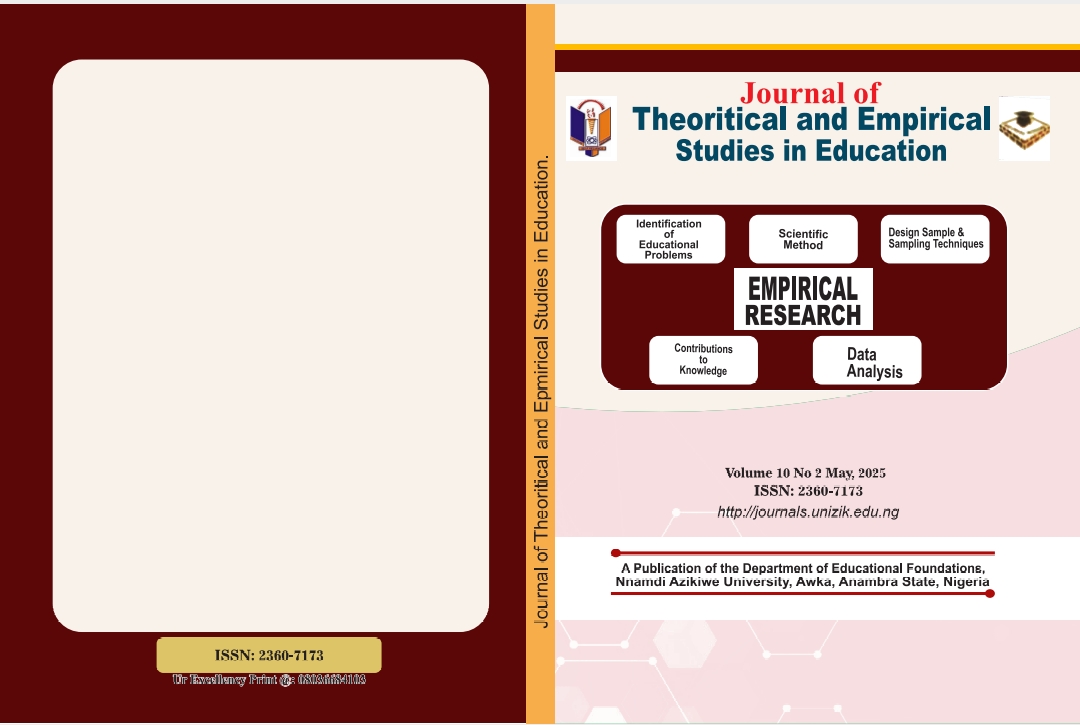Exploring Students’Achievement Goal Orientation, Self-Efficacy Beliefs, and Their Academic Achievement in English Language at The Secondary School Level
Keywords:
Achievement Goal Orientation, Self-Efficacy Beliefs and Academic Achievement.Abstract
Achievement goal orientation and self-efficacy beliefs are strong intrinsic
motivational constructs that could influence students’ learning process. The study
aimed to examine the intricate interplay and contributing effect of students’
achievement goal orientation and self-efficacy beliefs on their English Language
achievement. The study adapted a predictive correlational research design. The
sample size is made up of 660 secondary school students in Anambra State. Our
findings showed that self-efficacy beliefs, mastery-approach, performance
approach, and performance-avoidance uniquely predicted students’ academic
achievement. Also, the clusters of achievement goal orientation and self-efficacy
beliefs jointly predicted students’ academic achievement. Based on the
contributions of achievement goal orientation and self-efficacy beliefs in
predicting students’ academic achievement, teachers should encourage students
to develop a high level of intrinsic motivational beliefs to record achievement
success.




